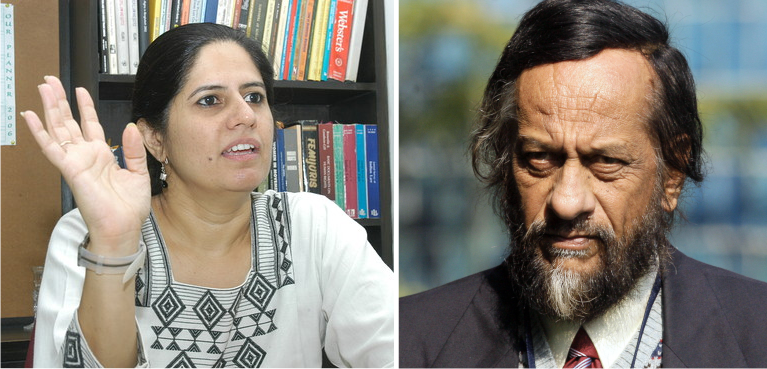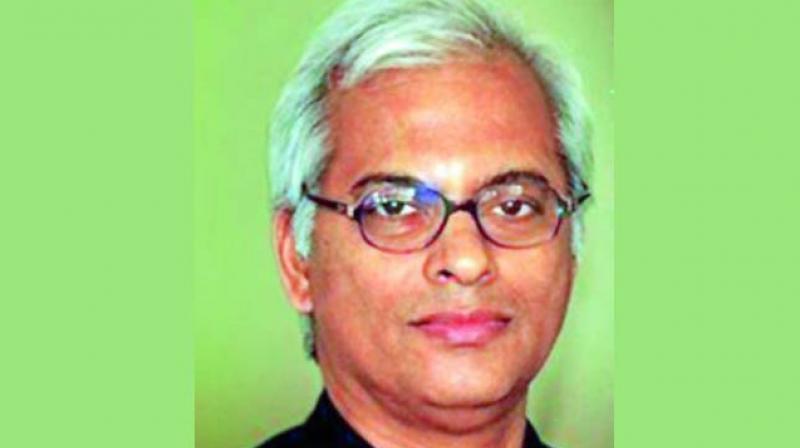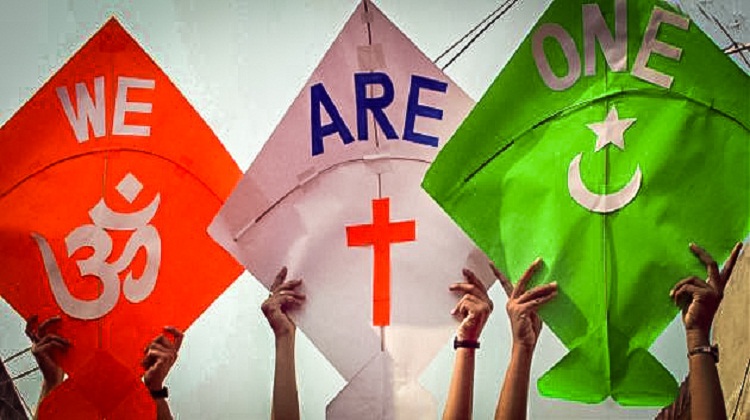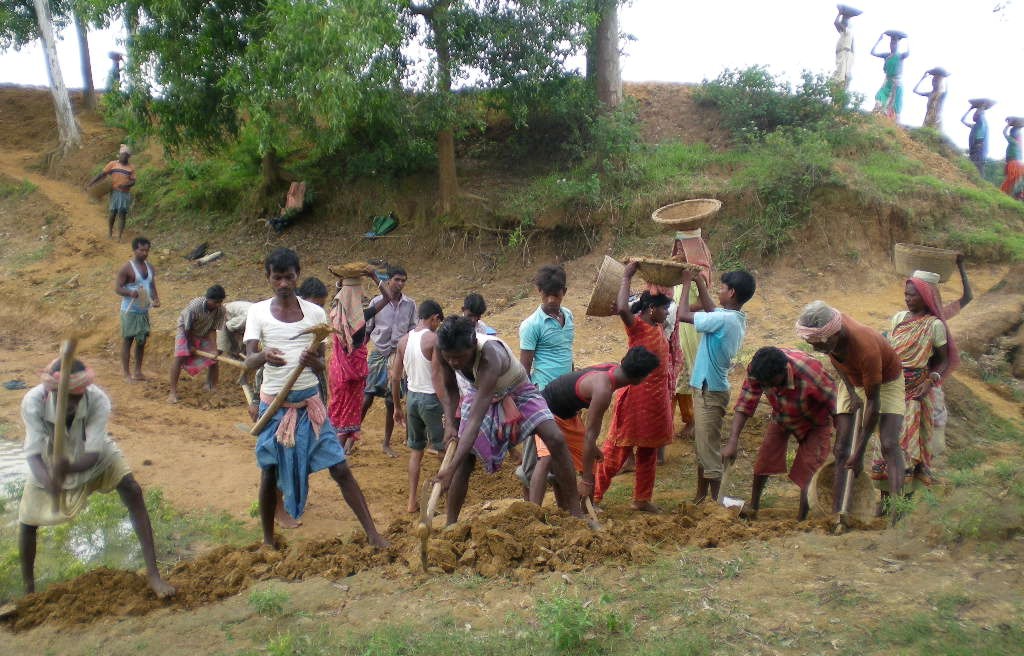Prannoy Roy classifies all Muslims in Assam as migrants and Ahoms as Assamese but the earliest Muslim settlers came before the Ahoms did, says Aman Wasud
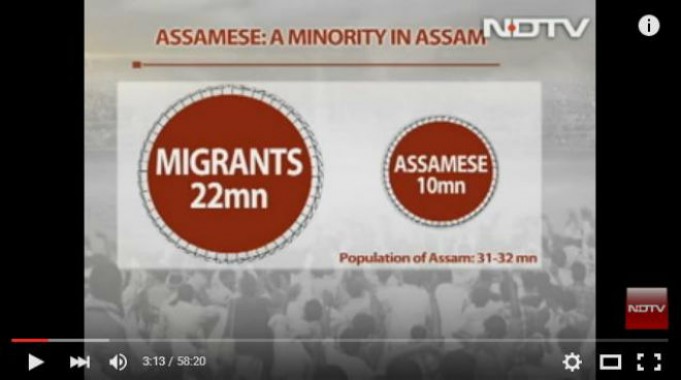
http://www.thehoot.org/media-watch/media-practice/ndtvs-battleground-assam-wrong-on-history-and-facts-9289
Very often, the national media offers the excuse of the “tyranny of distance” to explain their negligence and ignorance about Assam. For most Delhi-based journalists, Assam is still an unknown territory. They go by whatever little is written about the contentious issues in Assam. Very few venture out to check the veracity of these reports. Truth and the ground realities are the casualties.
On Apri 8, NDTV aired a special programme on the Assam state election. It was hosted by India’s best known TV anchor Dr. Prannoy Roy who was joined by Dorab Sopariwala and Shekhar Gupta who spent three years reporting from the North East in the early ‘80s. The programme started with promotional trailer which said “TVs most credible faces come together to tell you who will be the big winner”. A short while later, Roy states “Assam has 31.2 million people and the Assamese are a minority in Assam”.
Sounds familiar? Yes, very often chauvinists and right-wingers say similar things, ie that the Assamese will become a minority in Assam. Some have even projected the year; a recent report that made the headlines was an independent survey done by Indrajit Barua who predicted that the indigenous population of Assam will be reduced to a minority by 2047. But according to Roy, this has already happened. He further states that migrants in Assam number 22 million and the original Assamese number only 10 million.
Then he breaks up the figure. He divides the entire population of Assam into two categories: “Migrants” and “Assamese”. In the first category of migrants are eleven million Muslims (the total Muslim population of Assam), six million Bengali Hindus and five million tea garden workers. In the second category of Assamese, according to Roy, are two million Ahoms (original Assamese as he calls them), 1.4 million Bodos, 1.4 million Christians, 0.6 million Mishing, and 1.6 million other tribes.
Fortunately history is different and so are the facts but Roy seems oblivious of both. The migration of Indo-Aryans to this region dates back to the Vedic period. Many Bengali-speaking Muslims who are indigenous to the lower Brahmaputra valley are converts from lower caste Hindus of Indo-Aryan stock.
The Khasi-Jayantias were the first inhabitants of Indo-Austric stock. The Bodo-Kacharis are of Indo-Tibetan origin and migrated to present day Assam much before the Ahoms (Gait, A History of Assam, 1925). The history books tell us that Muslims came to Assam in the year 1206 AD which is even before the Ahoms who migrated from Yunan Province of present-day China, and from Thailand and Burma in 1228 AD (ibid).
Muhammad bin Bakhtiyar Khalji was the first Turkish commander to enter Assam while making an effort to invade Tibet in 1206 AD (ibid). This marked the beginning of Muslim settlement in Assam, to be followed by series of invasions first by Afghan rulers and then by the Mughals.
In upper Assam, a large number of people converted to Islam under the influence of legendary Sufi Saint Hazrat Shah Miran, popularly known as Azan Peer who was a disciple of Hazrat Nizamuddin and who settled near Sibsagar after getting married to an Ahom woman (Naqvi, 2013).
The first entry into Cachar by a Muslim was by Jamal Khan, a commander of the Mughal Army which was ruling in Bengal. He entered into the Cachar territory of the Cachar King (Dimacha) but in a midnight ambush, Jamal Khan, along with all his companions, was massacred (Cachar District Record).
In 1799, Mughal adventurer Aga Mohammad Reza entered Cachar through Sylhet and after defeating the Cachar King, Krishna Chandra, occupied the kingdom of Cachar, particularly the areas now represented by the two sub-divisions of Silchar and Hailakandi. Reza, who entered Cachar with more than 5000 followers consisting of Pathan and Mughal renegades from the then-dismembered Mughal army, settled down in Cachar. He and his followers mingled with local Cacharis, adopted local customs, and practised inter-racial marriage. Very soon, many Cacharis converted to Islam (ibid).
Many people from this stock are now citizens of Bangladesh because Sylhet became part of East Pakistan after partition. Sylhet, including Cachar, was always part of Assam and was under Ahom rule too. But according to NDTV, the entire Muslim population is migrants.
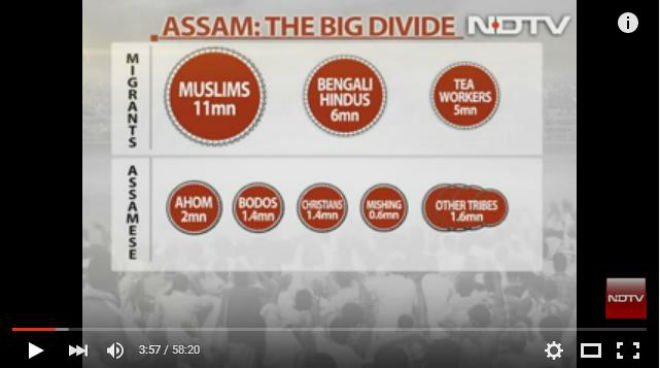
Roy then turns to Sopariwala to say, “So Dorab, it’s amazing, 22 million outsiders or migrants in the state and only 10 million indigenous or local population”. Now it’s Sopariwala’s turn to exhibit his expertise on Assam. He very confidently states: “There is another way of looking into it, most of these, except the Bangladeshi Muslims, have been here for a long time, they been here for 100 years, the Marwaris came, the Bengalis came, people from the tea gardens came from Jharkhand, Orissa Madhya Pradesh and Bengal and so the rest of the migration has taken place slowly and so they have almost been absorbed into Assam. It’s the latest migration from across the border that stands out.”
So if the tea garden workers who have been in Assam since the start of tea industry and the many Bengalis who came with the British have been absorbed into Assam and call themselves Assamese, how is it that they do not fall into the category of ‘Assamese’, according to NDTV?
The Bodos have their distinct culture and separate language, don’t even consider themselves as Assamese, and are fighting for a separate Bodo state. Yet NDTV categorizes them as Assamese. Large numbers of Christians in Assam are Bodos and tea garden workers but NDTV confuses and separates Bodos from Christians and it calls tea garden workers migrants but calls Christians Assamese.
After independence, Muslim immigration has been negligible (Guha, 2011). Those Muslims of Bengal origin who are branded as Bangladeshis (and who Sopariwala was most likely referring to) were either natives of undivided Goalpara (which was always a Muslim-dominated district) or migrated from undivided Bengal and later East Bengal. Many Muslims in undivided Goalpara are also converts from the Koch Rajbonghsi community, from the Mech tribe, the Hajong community and the Rabhas tribe, and now call themselves Deshi Muslims (Barpujari, 2014).
The migration of Muslim peasants of Bengal origin started in the later part of the 19th century under the patronage of colonial administrators according to a well thought out colonial policy. The British promoted such migration as they wanted the hard working Bengali Muslim peasants to cultivate the barren and fertile land of the Brahmaputra valley.
The migration of these peasants was at its peak in the first three decades of the 20th century. Sanjib Baruah, in his celebrated 2011 book “India against Itself” quotes C.S. Mullan, the superintendent of the 1931 census: “In another thirty years it is not improbable that Sibsagar district will be the only part of Assam in which Assamese will find itself at home.”
Mullan’s prediction, even after nine decades, is yet to come true, but the opposite happened. Those Muslim peasants of Bengal origin who migrated from undivided Bengal and East Bengal gave up their mother tongue, accepted the Assamese language, got assimilated with the local culture, studied in Assamese medium schools, and call themselves Assamese. In fact, in the entire Muslim-dominated area of lower Assam, there is not even a single Bengali medium school. **
Some mainstream Assamese intellectuals call these Muslims of Bengal origin ‘neo-Assamese’. However, chauvinists and right wingers are averse to calling Muslims of Bengal origin Assamese, despite their unprecedented sacrifice of giving up their mother tongue. Sopariwala seems to have fallen into the latter group, intentionally or unintentionally.
Denying the post-1971 migration of Muslims from Bangladesh will be wrong. The formation of human civilization is a result of migration. Every country has illegal immigrants. But branding all Muslims of Bengali origin as Bangladeshi Muslims is grossly unfair, preposterous, and prejudicial and has far-reaching consequences for the lives and properties of people and the history of Assam.
Muslims of Bengal origin have been facing persecution over their identity since independence and, since the Nellie massacre of 1983, mass violence has been cyclic. Every time Muslims of Bengal origin become victims of mass killings, right-wing politicians and jingoists describe them as Bangladeshi Muslims or illegal immigrants and shift the focus from gross violations of human rights to ‘illegal immigration’, thereby giving impunity to the murderers to carry on with further mass murders of Muslims.
No wonder that, from the Nellie massacre to the 2014 Khagrabari massacre, not even a single perpetrator has been punished.
At the beginning of the show, Roy said that, “This is a very complex election and the national media hasn’t really focused much on it and I have learned a lot by coming and traversing the state”. Well, if this is a complex election, so is the history of Assam and he and his team need to learn much more to understand the complexity.
(The author is a Guwahati-based human rights lawyer. He tweets @AmanWadud)
References:
1. Prantik , Parag Das , 5th issue, 1-15 February, 1987
2. Chorot Sahitya Sadana, Editorial , Notun Deen, 6th February, 2005
3. Bihu Aru Char Chapori Bakhi, Hafiz Ahmed, Dainik Batori, 13th April, 2005, Page 7.
Other References:
Barpujari, H. K. (2014). The Comprehensive History of Assam (4th ed.). Guwahati: Publication Board of Assam.
Baruah, S. (2011).India Against Itself: Oxford University Press.
Gait, E. (1925) A History of Assam (2nd ed.). Guwahati: Eastern Book House.
Guha, A. (2011). Jagaran (Souvenir of Char Chapori Sahitya Parishad, Assam).
Naqvi, S. (2013, Feb 28) Northeast Review. Retrieved April 11, 2016, from Rhythm of the Brahmaputra: Hajo, Assam: https://northeastreview.wordpress.com/2013/02/28/saba/

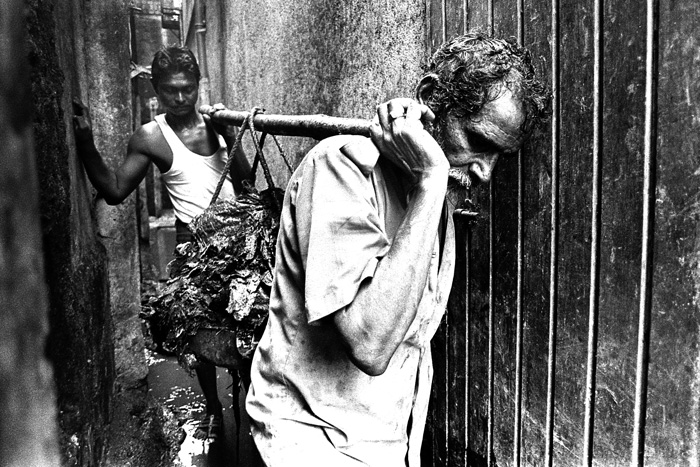
.jpg)
.jpg)
